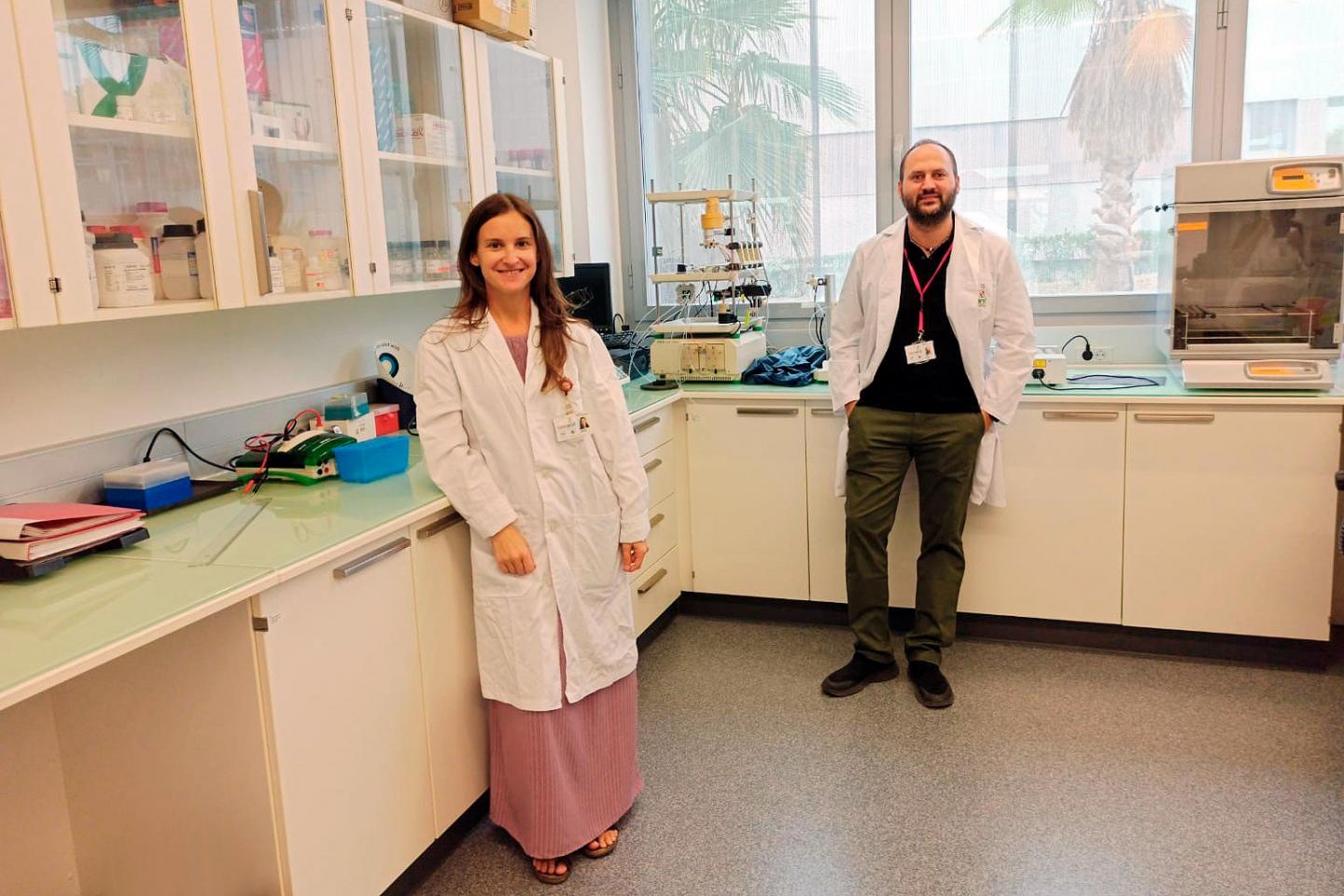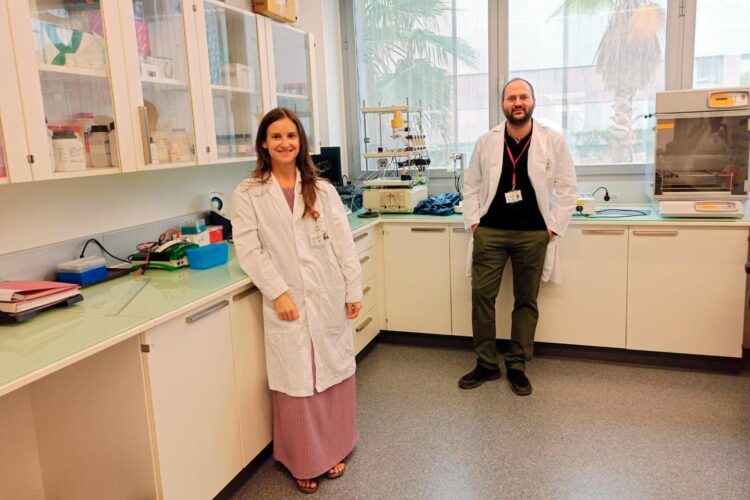Researchers at the University of Malaga study how ‘4-PBA’ treatment modulates the inflammatory response in severe cases of COVID-19

Credit: University of Malaga
Scientists from the Department of Cell Biology of the University of Malaga (UMA) and the Andalusian Centre for Nanomedicine and Biotechnology (BIONAND) have made progress in finding new rapid implementation therapies to combat the COVID-19 pandemic, identifying a new drug that could prevent or mitigate the consequences derived from SARS-CoV-2 infection.
In the coming year, a team led by the researchers of the UMA Iván Durán and Fabiana Csukasi will study how 4-Phenylbutiric acid (4-PBA) treatment modulates the inflammatory response produced in severe cases of COVID-19. The project has been financed by the COVID-19 Fund of the Government of Andalusia, with an initial endowment of EUR 90,000 and the possibility of a three-year renewal. First results have already been published in the scientific journal Cytokine and Growth Factors Review.
The inflammatory process identified in severe cases of coronavirus causes an uncontrolled and excessive release of cytokines -molecules in charge of organizing the body’s defenses- which could even trigger vascular hyperpermeability and multiorgan failure. Controlling such cytokine “storm”, through those controlling them, that is, the infected cells, is precisely what these researchers of the UMA propose.
“When cells are stressed by infection, they call the cytokines, and the more stressed they are, the more persistent they become, provoking this uncontrolled inflammation. Hence, one possible treatment for COVID-19 is to reduce cellular stress”, explains Durán.
According to the researcher, repurposing the 4-PBA anti-stress drug, approved for clinical use against other diseases and, hence, easy to apply clinically, could modulate such cellular stress, which is also present in pathologies like diabetes, aging or carcinogenesis, which, in turn, are classified as risk factors for COVID-19.
Identifying risk groups
“Our preliminary results conducted on animal models have demonstrated that 4-PBA fully curbs mortality caused by respiratory failure derived from cellular stress”, says the professor of the UMA, who further explains that these first studies have also identified the endoplasmic reticulum resident protein “BiP” (Binding Immunoglobulin Protein) -a stress blood marker- as indicator of cellular stress situations, likely to be explored and measured in affected patients.
This way, as Durán points out, BiP levels, apart from determining the efficacy of 4-PBA treatment, could serve as early indicators of COVID-19 risk groups, establishing a correlation between high levels and the inflammatory severity after the viral infection.
“There are people already suffering from diseases that cause cellular stress, and when they become infected with coronavirus, they are more likely to fall ill or die. Therefore, if we know that the patient suffers from cellular stress, we can kill two birds with one stone: we can detect susceptibility before infection occurs and know how to treat it in due time”, remarks the scientist of the UMA.
In order to confirm the effectiveness and security of 4-PBA treatment through in vitro and in vivo studies of cytokine storm and SARS-CoV-2 infection, the scientists Csukasi and Durán work at the Biomedical Research Institute of Malaga (IBIMA) in collaboration with Dr. José María Reguera and Dr. Javier Sánchez from the Regional University Hospital of Malaga and Virgen de la Victoria University Hospital, respectively, and Deborah Krakow, researcher of the University of California, Los Angeles, as well as the researchers Manuel Mari-Beffa, Gustavo Rico, José Miguel Tejeiro, Rick Visser and David Bagllieto, members of the Bioengineering and Tissue Regeneration Laboratory (LABRET), directed by Professor José Becerra, who are also members of the Cellular Therapy Network, CIBER-BBN and CIBER-NED.
###
Reference:
Csukasi F, Rico G, Becerra J, Duran I. Should we unstress SARS-CoV-2 infected cells? (2020) Cytokines and Growth Factors Review. 54:3-5. doi: 10.1016/j.cytogfr.2020.06.011
Media Contact
María Guerrero
[email protected]
Original Source
https:/
Related Journal Article
http://dx.





